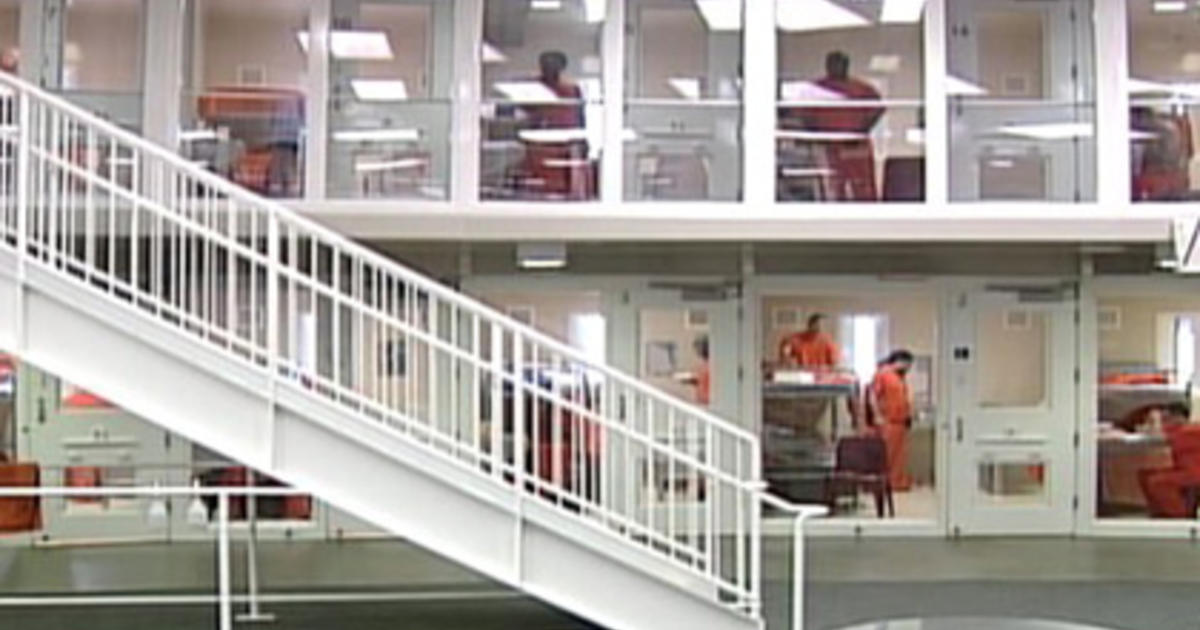Help Prevent 500,000 Americans Dying Each Year From Disease With No Cure, No Prevention
(CBS SF) -- You rush over to greet your grandfather, giving him a big hug, but he looks at you bewildered. He doesn't know your name, and wonders why this stranger is now in his room. You patiently explain that you're his granddaughter, when suddenly he yells at you and says he doesn't have a granddaughter, and you must be trying to take his money. In desperation, he yells for his wife to come in here and help figure it out. He doesn't remember that she's been dead for ten years, and he keeps asking why she's taking so long.
This man is the patriarch of the family, the breadwinner, the rock, the strong arms that picked you up as a kid, and the strong will to guide you as an adult.
He begins crying uncontrollably, and you just put your head in your hands and sob along with him because there is nothing more you can do.
If you know someone with Alzheimer's disease or other forms of dementia, this scene is all too painfully familiar. If you are lucky enough not to have suffered through this with a parent, grandparent or loved one, unfortunately it's nearly inevitable that this fate will hit you too soon enough.
- Alzheimer's symptoms can start as early as in the 40s and 50s, but more likely in the 60s. 5.1 million Americans have some form of dementia.
- The disease kills more people than prostate cancer and breast cancer combined.
- It's the sixth leading cause of death in America but it cannot be cured, prevent, or even truly slowed. Treatments only reduce the effects.
- The toll on the families is staggering, with Americans giving 17 billion hours of unpaid care each year to helping their loved ones.
- The value of that time is $220 billion dollars.
- Women face a 1 in 6 chance of developing Alzheimer's at age 65.
- Men face a 1 in 11 risk.
SOURCE: http://www.alz.org
This is why KPIX's Dennis O'Donnell is joining with KCBS Radio, CBS Interactive, and our CBS partners for the Walk to End Alzheimer's on Saturday, September 20th.
If you want to help prevent the devastating disease from robbing loved ones of their memories, and eventually taking their lives, you can donate or help at the following links:
SAN FRANCISCO ALZHEIMER'S WALK:
http://act.alz.org/site/PageServer?pagename=walk_faq
DONATE: Team CBS
THE DISEASE: http://www.alz.org/
WATCH:
The 10 Warning Signs Of Alzheimer's:
REPRINTED FROM ALZ.org
Note: This list is for information only and not a substitute for a consultation with a qualified professional.
1. Memory loss that disrupts daily life.
One of the most common signs of Alzheimer's, especially
in the early stages, is forgetting recently learned information. Others include forgetting important dates or
events; asking for the same information over and over; relying on memory aides (e.g., reminder notes or
electronic devices) or family members for things they used to handle on their own.
What's typical?
Sometimes forgetting names or appointments, but remembering them later.
2. Challenges in planning or solving problems.
Some people may experience changes in their
ability to develop and follow a plan or work with numbers. They may have trouble following a familiar
recipe or keeping track of monthly bills. They may have difficulty concentrating and take much longer to do
things than they did before.
What's typical?
Making occasional errors when balancing a checkbook.
3. Difficulty completing familiar tasks at home, at work or at leisure.
People with Alzheimer's
often find it hard to complete daily tasks. Sometimes, people may have trouble driving to a familiar
location, managing a budget at work or remembering the rules of a favorite game.
What's typical?
Occasionally needing help to use the settings on a microwave or to record a television show.
4. Confusion with time or place.
People with Alzheimer's can lose track of dates, seasons and the
passage of time. They may have trouble understanding something if it is not happening immediately.
Sometimes they may forget where they are or how they got there.
What's typical? Getting confused
about the day of the week but figuring it out later.
5. Trouble understanding visual images and spatial relationships.
For some people, having vision problems is a sign of Alzheimer's. They may have difficulty reading, judging distance and determining color or contrast. In terms of perception, they may pass a mirror and think someone else is in the room. They may not recognize their own reflection.
What's typical?
Vision changes related to cataracts.
6. New problems with words in speaking or writing.
People with Alzheimer's may have trouble following or joining a conversation. They may stop in the middle of a conversation and have no idea how to continue or they may repeat themselves. They may struggle with vocabulary, have problems finding the right word or call things by the wrong name (e.g., calling a watch a "hand clock").
What's typical?
Sometimes having trouble finding the right word.
7. Misplacing things and losing the ability to retrace steps.
A person with Alzheimer's disease may put things in unusual places. They may lose things and be unable to go back over their steps to find them again. Sometimes, they may accuse others of stealing. This may occur more frequently over time.
What's typical?
Misplacing things from time to time, such as a pair of glasses or the remote control.
8. Decreased or poor judgment.
People with Alzheimer's may experience changes in judgment or decision making. For example, they may use poor judgment when dealing with money, giving large amounts to telemarketers. They may pay less attention to grooming or keeping themselves clean.
What's typical?
Making a bad decision once in a while.
9. Withdrawal from work or social activities.
A person with Alzheimer's may start to remove themselves from hobbies, social activities, work projects or sports. They may have trouble keeping up with a favorite sports team or remembering how to complete a favorite hobby. They may also avoid being social because of the changes they have experienced.
What's typical? Sometimes feeling weary of work, family and social obligations.
10. Changes in mood and personality.
The mood and personalities of people with Alzheimer's can change. They can become confused, suspicious, depressed, fearful or anxious. They may be easily upset at home, at work, with friends or in places where they are out of their comfort zone.
What's typical?
Developing very specific ways of doing things and becoming irritable when a routine is disrupted.
If you have questions about any of these warning signs, the Alzheimer's Association recommends
consulting a physician. Early diagnosis provides the best opportun



